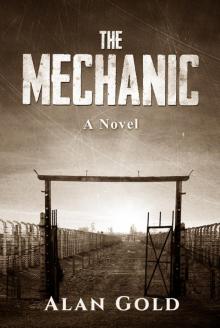Bell of the Desert Read online
Page 12
As she stepped down from the taxicab which had fought the pedestrians all the way from St. Pancras railway station to Whitehall, Gertrude Bell was more aware than most people of the changes which had taken place in the three months since she’d last been shopping in London. Perhaps because she was more knowledgeable of the realities of the rapidly-spreading European war, or perhaps because she wasn’t living on a daily basis in London, she found the subtle differences quite surprising and worrying. Although she had been born a decade after the hideous Crimean War which had dragged the Ottoman Empire into a confrontation with Russia, she knew the horrors of conflict better than most and wasn’t blinded by the nationalistic zeal spreading through Great Britain. She understood all too well that a Londoner’s fervent patriotism became a Cardiff boy’s hideous death on a foreign battleground.
The war in the middle of the previous century should have warned all politicians of the dangers of confrontation. Because of the skirmish in the Crimea, England had gone to war against the Russians and Austria-Hungary had postured and posed. It could have blown up into a global confrontation, though, mercifully, because Russia was so backward and weak, it had managed to remain a localised incident in the far-flung recesses of Europe. But now the same nations were doing the same things fifty years on, and she wondered where it would all end.
And as she saw military men passing her on the street, and talking and laughing animatedly, she shuddered when she remembered the evil of the Boer War which had ended only twelve years earlier, and which had claimed so many British lives because of the damned intransigence of the stiff-necked Boers in the Orange Free State and the Transvaal.
Wars! They were portrayed as such glorious enterprises, yet while the generals and admirals sat in their luxurious offices dictating the disposition of forces as thought they were playing some kind of universal chess game, it was flesh and blood men—young men—fathers and sons and brothers—who died in agony or who lay mortally injured on the front line, wounds festering in the blistering sun, waiting for the relief of a sip of water before their life ebbed away.
She forced herself to put these thoughts out of her mind as she paid the cabbie, and walked towards the entrance of the General Staff Headquarters. It was a white marble building, stark and unforgiving in the late-Georgian, early-Victorian mold of London’s official edifices. Like the empire, it was grand and huge and glorious and sturdy and eternal. And like the empire, those inside it would defend Great Britain’s interests against all-comers, regardless of how many men had to die in order to do so.
The soldier on guard duty saluted as she pushed her way through the heavy brass doors. She walked across the carpeted vestibule to the reception desk, where another solider was seated. He was reading some sort of list, and continued to read, head bowed in ignorance of her presence as she stood there, waiting for some acknowledgement from him that she existed.
After an annoying time, she said, “What’s your name?”
The soldier looked up, and frowned. Officers and gentlemen walked straight in to the building and went to their designated places of business. Tradesmen and journeyman and messengers came to his desk, and he had no compunction but to keep them waiting. He hadn’t realized a lady was standing there.
“What? Beg yer pardon?” he said.
She gave him a withering look, and said softly, “I see from your insignia that you’re a Lance Corporal in an engineering regiment, so I assume you have the capacity to understand the King’s English. I asked for your name. In my report to the Prime minister, I shall make special mention of your penchant for reading instead of examining the credentials of everybody who enters such an important building as this. Your name please, Corporal.”
The Sapper immediately stood at attention and saluted. “Who did you want to see Madam?”
“Whom! The expression is ‘Whom did you wish to see’. I’m here because I have a ten o’clock appointment with Lieutenant General Dowling. It’s now five minutes to ten. Kindly inform the general that Miss Gertrude Bell is waiting to see him. And King’s Regulations say nothing about saluting a civilian.”
“Yes ma’am, certainly ma’am,” he said. He called over a private and instructed him to escort the lady up to General Dowling’s office.
But she didn’t move. She stood there, staring at the Sapper.
“Is there something else, ma’am?”
“Do you know me?”
“No ma’am.”
“Yet you would allow a complete stranger to enter the most important building in London where top secret plans for the war effort are being drawn up. And you haven’t even asked me for any identification.”
The Sapper flushed and coughed in embarrassment. “Might I have you name please, ma’am.”
“Oh don’t be so ridiculous,” Gertrude snapped as she turned and walked towards the stairs, intent on making a serious complaint about security to General Dowling.
It was a long climb up the central flight of stairs, then around into the Western Wing, then around the mezzanine balcony before climbing another flight which brought her to the floor on which was housed the General Staff, England’s most senior military men. The corridors were alive with men in uniform walking hastily from room to room carrying sheafs of papers and reports. There were men huddling in groups across the landing, talking urgently. An imperative atmosphere of quiet and restrained activity infused the air.
A military officer in dress uniform was stationed, like some Cerberus or Chiron, at the entryway to the Senior Officer’s floor, ready to ferry some poor hapless individual into a darker realm. The officer was a young and very attractive Second Lieutenant and was sitting at a desk which had a telephone placed centrally. He was writing a report, but snapped to attention when the private and Gertrude arrived. He’d obviously been informed by the guard in the lobby that some harridan was on her way up.
“Miss Bell?” he asked, “How very nice to meet you. General Dowling is expecting you, ma’am. Please follow me. That’s all, Private,” he said.
She followed the younger man down the corridor, and couldn’t help but glance into the walnut panelled offices of the senior military planners. Each office was decorated in precisely the same way—maps on the wall, the pink swathes of British Empire dotted with pins and small flags, huge round globes of the world, all fixed on Europe, papers sprawling across desks which pointed to late night discussions—it was an organised bedlam of activity and serious intent.
They turned to the left into another corridor, and the atmosphere suddenly changed from that of a practical factory floor into a deeper, calmer, and somehow more purposeful environment. Instead of walking along an inexpensive floor covering, she suddenly found herself walking on a thick blood-red carpet. Even the walls had changed and were festooned with paintings of former Chiefs of the General Staff, of Admirals of the Fleet, and Generals of the Army, all resplendent in their uniforms and ribbons and decorations. Halfway down the corridor, the young officer stopped, and showed her into an anteroom. It was a place where people waited while the great General Dowling finished one conference and readied himself for his next. The room was utilitarian in its furnishings. There was a round mahogany table on which were copies of The Times, Tatler, and Country Life, and leather chairs around the walls. It smelled of tobacco, and even though Gertrude was a heavy cigarette smoker, she couldn’t abide the cloying stench which lingered long after a cigar had been smoked.
Discomforted, and still unsure why the foreign secretary had asked her to meet with General Dowling this morning, when the war against the Kaiser had been declared three months earlier in July, she sat, picked up a copy of The Times, and began reading about the success of the 5th Cavalry Division of the British Expeditionary Force in a battle at some Godforsaken place in Belgium called Mons.
She was three paragraphs into the news article, when someone entered the room, and a high-pitched and somewhat quavering voice she knew from the past said, “Good God. Gertie! What are you doing he
re?”
Gertrude couldn’t help but beam a smile of delight when she saw him. She hadn’t set eyes on him in years, yet he didn’t seem to have aged a bit. As he walked over, he bent down to where she was seated and kissed her on both cheeks. He sat beside her, and held her hand, stroking it and delighting in their reunion, equally pleased they’d found each other again. He was such a precious boy!
“My dear Thomas. How unexpected and glorious to see you here, dear boy. Never mind about me! What are you doing here? I haven’t seen you since we dangled feet in the rivers of Babylon.”
“Gertie, I heard just this morning that some very important person was coming in to see the boss, but I never imagined you would be the Grand Pooh Bah. They said it was some expert on Arabia, and I couldn’t think for the life of me who it could be. And it’s you. Oh, this is just too wonderful. I feel like it’s my birthday. But what are you doing here? Why are you seeing the top brass? Have you met General Dowling before? He’s pretty fearsome, so I understand, not that a lowly officer like me would even be noticed by one such as him. And then I received a summons from on high, and here you are.”
“And here we are. Oh, Thomas,” she said, grasping his hand and holding it, “I’ve thought so often about seeing you again. I’ve missed you, dear boy. I’ve really missed you very much indeed.”
She hadn’t answered his questions. Deliberately. He was always full of questions, and the best way to handle his curiosity was to ignore the questions he asked initially. When he re-asked a question, it meant that it was important, and that was one she would answer.
She breathed deeply, and smelled the lavender and pomade he put in his hair. She remembered the scent from when she’d first met Mr. Lawrence in Arabia. Even then, despite the strangeness of their first meeting, she’d been attracted to his easy-going way, his lack of pretension, his keen sense of the wonders of the desert, and his passion for Arabic history.
They continued to hold hands and speak animatedly. It was so very good to see him again. She’d corresponded with him since their first meeting in the desert, and had enjoyed his honesty, his valour, and his knowledge. Under her guidance and advice, he’d educated himself about the politics of the Middle East, and was now quite familiar with both its landscape and its peoples. But in the last year, with all the confusion and turmoil in the world, they’d lost touch. She was thrilled they were together again.
“So what are you doing in uniform? Second Lieutenant, isn’t it?”
“Temporary Second Lieutenant-Interpreter, to be precise. I’m here doing maps, and stuff. There’s great concern that a fresh front will open up should Turkey enter the war . . .”
“Should? I would have thought it was a case of when rather than should. Constantinople is bound to want to take advantage of the British and French distraction in their involvement in Europe.”
“Do you think so?” he asked. “We’re all rather hoping that Turkey will have enough sense to keep out of it. After all, aside from the Berlin to Baghdad railway, there’s precious little trade between Germany and Constantinople. Not like Britain and France who do a lot of business with the Turks. Surely they’ll realize on which side of the bread there’s butter?”
“Don’t you believe it, dear boy. The Turkish War Minister, Enver Pasha is just itching for a reason to involve his government. He sees it as his great opportunity to revive the fortunes of the Ottomans. Oh, there’s opposition to him in his government, people who think Turkey should stay out of the engagement, but I’ll bet they’ll be overruled because of pressure from the Young Turks in the army, and their involvement in this war will begin in the Black Sea. You mark my words. They’ve let the German Navy in there, and that’s the underbelly of Russia, and Turkey hates Russia with a vengeance. You’ll see. They’ll be shelling Odessa and Sevastopol before the years out.”
Before he could respond, the door of General Dowling’s office suddenly opened, and a group of uniformed military men walked out talking urgently to each other. The general appeared framed in the doorway, and walked over to where they were sitting. Lieutenant Lawrence immediately stood and saluted, a gesture returned by a curt nod from the general. Then he turned to Gertrude, and shook her hand.
“My dear Miss Bell. I’ve heard so much about you.”
He turned, and acknowledged Lawrence’s presence once more with a curt nod. They followed him into his office. The air below the ceiling was tinged blue with the cigarette smoke from the previous meeting. There was almost no oxygen in the room.
“It was very good of you to travel down to London to see us. Not too arduous a journey, I hope,” the general said. He was a portly man, tall but with a middle-aged spread which made the buttons of his drab brown uniform strain to hold in his girth. Another door suddenly opened, and a batman walked in with a silver tray holding cups, a teapot, another pot for hot water, a dish with lemons, a jug of milk, and the ubiquitous tin of Fortnum and Mason’s mixed assortment biscuits. Thomas Lawrence eyed the large chocolate biscuit in the middle of the tin, and wondered whether he had the courage to take it before the others.
While the batman was setting it down on the buffet, the general continued, “I’ve asked Lieutenant Lawrence to join us, because he’s working on maps of the Middle East. The point is, Miss Bell, and this must remain top secret, our military advisors believe that Turkey will almost certainly enter the war in the very near future, and we have to protect British interests in Egypt, in the Suez Canal, and elsewhere. As I’m sure you’d be the first to appreciate, we have to protect our route to India. For that, we have to have intimate knowledge of how the local Arabs will react when we call on them. Will they side with the Turks, or will they side with us?”
She began to speak, but the general hadn’t finished. “I’m aware you’ve been flooding the Foreign Office with letters and reports about what we should be doing, so we all thought it was time for you to come in and meet with us.”
She saw her report on his desk, a document she’d written to the Director of Military Operations in Cairo, about how Great Britain should respond in order to protect its Suez route to India and its developing oil interests in the Persian Gulf. Both of these would be under threat if Turkey and Germany joined forces. Its appearance on General Dowling’s desk meant that the Director in Cairo had passed it on to the British foreign secretary, who in turn must have given it to the War Office.
Her report was based on her extensive travels through the region in the previous few years and outlined what she understood of native attitudes and dispositions in Syria, Egypt, Palestine, and other parts of Arabia. She’d heard that her report had been studied with great interest at the War Office and the Foreign Office, as well as at Military Intelligence in Egypt. Her advice was that the British must motivate and organize the Arabs into a unified army to revolt against their Turkish masters. She’d begged Military Intelligence to let her travel her back to Cairo so she could be on the spot. This, she assumed, was her call to serve.
General Dowling continued, “The foreign secretary himself decided it was about time that we on the General Staff listened to you. You seem to have an expertise in the area. How’d you feel about working with Lawrence here, and drawing up the disposition of the area?”
Surprised by the minimal nature of the request, she composed herself, waited a moment to ensure he’d finished talking, and said, “Frankly, General, much as I admire Mr. Lawrence, I would better serve the interests of the government if I was on the spot. I need to be at Military Headquarters in Cairo, not in London. I have an expert knowledge of the tribes of the deserts. I know their leaders, I know how they think. I can influence them when they’re pressured by the Turks to join them in the struggle. You have to understand the Turks are thinking precisely what we’re thinking at the moment, and their method of persuasion is handing out baksheesh like it was confetti at a wedding. They’ll pay a fortune to keep the desert Arab sheikdoms on their side. But if I’m there, I know I can prevail on them to see the imp
ortance of fighting for Britain, perhaps even at a lower cost than the Turks. I’ve been given the greatest compliment of hospitality in their tents by the very people we have to influence to join us. I speak their language, I’m an intimate of their wives and families, they seek my counsel and trust me and call me the Daughter of the Desert . . .”
“But they imprisoned you . . .” interrupted General Dowling.
She looked at him in surprise. “How on Earth did you know that?” she asked.
“We have pretty good intelligence, you know. Apparently you were going to try to see some blighter called ibn Sa’ud, and his mortal enemy ibn Rashid thought you were a spy, and according to reports I’ve received, locked you up in some town called Hayil.”
She nodded.
“Were you in danger?” asked Lawrence, who knew nothing about it.
“I have to admit I was pretty frightened. For the first time in my travels, I honestly didn’t think I was going to get out of there alive. The Turks and the British had withdrawn any permission for me to travel to the area because it was so dangerous, and so I was completely on my own. Still, I talked my way out of the situation, and I’m still alive to tell the tale.
“But that’s the point, don’t you see? I know these people well enough to save my own skin. I’ve lived with them and understand them. They’ve spoken to me about an Arab revolt. The King of the Hejaz held a very private meeting with Lord Kitchener last year asking him what Britain would do in Arabia if the desert tribes revolted against the Turks. They’re on the cusp of either siding with us, or those who will soon be our enemy. The decision could go either way. The moment is crucial, General, and I can assist in the process of persuading them. There are dozens of tribes, some small, some large, and I know them. They trust me. I’m useless here, but I could be of inestimable valuable over there.”

 Birthright
Birthright The Pretender's Lady
The Pretender's Lady The Mechanic
The Mechanic Bloodline
Bloodline Bell of the Desert
Bell of the Desert Bat out of Hell
Bat out of Hell Stateless
Stateless